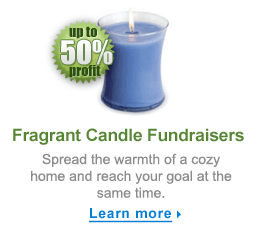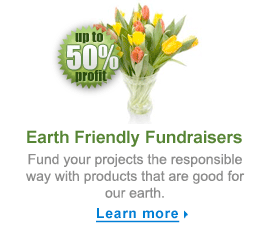In the first article in this series we discussed 5 general reasons why people donate to charitable causes. Beyond the general reasons that we’ve already discussed it’s critical that your fundraising team consider why an individual would be motivated to give to your group in particular.
Here are five of the top reasons that someone may choose your group over, or in addition to, a similar organization.
1. They Support the Way Your Group Solves a Problem
People often give to organizations that are in tune with their values and beliefs, or support a particular interest or hobby. However there are often many organizations within a particular broad mission category.
For example, a search on Guidestar using the keyword “hunger” returned 1,562 organizations that support hunger relief! But there are many ways to address this particular issue. For example, our local food bank runs a program that was pioneered by America’s Second Harvest called Kid’s Cafe. It provides after school meals and activities for a-risk children. On the other hand, Bread for the World focuses on legislation and local advocacy to promote policy change. These are two very specific ways of helping solve the broad issue of hunger.
There are people that will appreciate the specific way that your organization solves a problem or engages its mission, and may prefer this approach over another and be persuaded to donate on this basis. In your communications to members highlight the specific ways that your group fulfils its mission.
2. They Have Seen Evidence of Your Organization’s Effectiveness
While someone may not have been personally touched by the cause or your organization, they may be motivated to give because they have been impressed by your effectiveness. While this is generally not the sole motivating factor, your organization’s past performance and reputation go a long way in helping secure a donor’s trust.
I have personally seen this on a local level in several instances. An organization that consistently went about its mission for 20+ years saw an amazing response when they did their first donor acquisition direct mail appeal.
This is also a word of warning for new organizations. It is tough to start a new non profit and it’s something that generally doesn’t happen over night. People want to see that you can make good on your promises before donating, especially when it comes to significant funds. For new organizations, relying on a few close friends who are champions of the cause and partnering with an existing non profit can be more effective in securing funds than soliciting a skeptical public.
3. Their Gift Has an Immediate Impact
People often enjoy giving to projects that meet an immediate need. Often these are time sensitive appeals. Meals and toys for children around the Christmas holidays are common projects that meet specific needs. A matching grant deadline or a project that will start soon are other examples of an urgent need.
Mal Warwick, in his book How to Write Successful Fundraising Letters says that all appeals should have some sense of urgency. Otherwise donors may think:
If the money I send you this week won’t make a difference right away, shouldn’t I send money to some other charity that has asked for my support and urgently needs it?
Consider how your organization can time its appeals to highlight the most urgent needs.
4. They Are Personally Involved With Your Organization
The more someone becomes involved with your group, the more they will begin to see its effectiveness. Even more important than that, they become personally invested in your cause and seeing your organization succeed. When you hear someone say “we” instead of “you” they consider themselves part of the team!
Here are just a few ways that you can engage current and potential donors with your organization:
- Provide a tour of your facility – open house or informal one on one tour
- Invite them to a lunch to be held at your facility
- Get them involved with a volunteer program
- Ask a former client or volunteer to go with you to speak at a civic organization
- When holding special events always have a strong connection to your mission
5. They Were Asked
The number one reason that people give is simply because they were asked. Even if someone generally supports your mission they may still not actually give financially unless asked.
Think about it in another context… how many people come to your home without an invitation? Even when you tell family or friends to “drop by anytime” they aren’t too likely to do so without you explicitly inviting them. Same is true with your donors. Even people who volunteer or are otherwise involved are more likely to give financially when they are asked to do so.
So what constitutes an ask? A billboard, a PSA or having a website “donate now” button? Nope… those are all too passive. The more direct your ask can be the better. The most broad appeal that can still be effective is through direct mail. The most personal is a one-on-one ask for support.
Listening to Your Donors
Many donors give because they like how your group solves a problem, they know your rate of effectiveness, their gift has an immediate impact or they are somehow personally involved. “Because you asked” is the over riding number one reason that many people give.
Of course these are still general reasons. The only way you can know why people give to your group is simply to get to know them. What are their needs and desires? What led them to become involved with your charity?
There are several mass data gathering ways to learn this information. If you have an email list you could hold a survey using free software such as Survey Monkey. A clip out survey in your newsletter is another option. Just like other appeals make these surveys time sensitive.
In the end though, building lasting support for your non profit organization comes down to the one-on-one relationships that you have with your supporters. The best way to learn why people do or do not give to your organization is to get to know them personally.
In her book FriendRaising: Community Engagement Strategies for Boards Who Hate Fundraising but Love Making Friends, Hildy Gottlieb gets to the heart of the matter:
Friendship is about kindness and generosity and compassion. It is about reciprocity, about that 2-way street of dependability, trust, nurturing…Friendship is not about what we get, but what we give.







